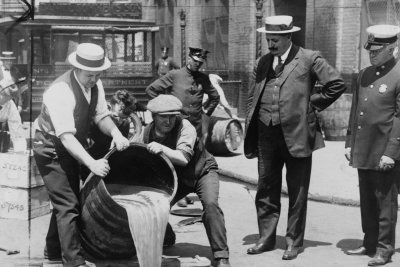Topic: Archibald MacLeish
Quotes
They were the first self-constituted, self-declared, self-created People in the history of the world
The almanac Dec 05, 2008
They were the first self-constituted, self-declared, self-created People in the history of the world
The almanac Dec 05, 2007
They were the first self-constituted, self-created people in the history of the world
The Almanac Dec 05, 2006
They were the first self-constituted, self-created people in the history of the world
The Almanac Dec 05, 2005
They were the first self-constituted, self-created people in the history of the world
The Almanac Dec 05, 2004
Archibald MacLeish (7 May 1892 – 20 April 1982) was an American poet, writer and the Librarian of Congress. He is associated with the modernist school of poetry. He has received three Pulitzer Prizes for his work.
MacLeish was born in Glencoe, Illinois. His father, Andrew MacLeish, worked as a dry-goods merchant. His mother, Martha Hillard, was a college professor. He grew up on an estate bordering Lake Michigan. He attended the Hotchkiss School from 1907 to 1911, before moving on to Yale University, where he majored in English and was elected to Phi Beta Kappa and selected for the Skull and Bones society. He then enrolled in the Harvard Law School. In 1916, he married. His studies were interrupted by World War I, in which he served first as an ambulance driver and later as a captain of artillery. He graduated from the law school in 1919. He taught law for a semester for the government department at Harvard, then worked briefly as an editor for The New Republic. He next spent three years practicing law.
In 1923 MacLeish left his law firm and moved with his wife to Paris, France, where they joined the community of literary expatriates that included such members as Gertrude Stein and Ernest Hemingway. They also became part of the famed coterie of Riviera hosts Gerald and Sarah Murphy, which included Hemingway, Zelda and F. Scott Fitzgerald, John Dos Passos Fernand Léger, Jean Cocteau, Pablo Picasso, John O'Hara, Cole Porter, Dorothy Parker and Robert Benchley. He returned to America in 1928. From 1930 to 1938 he worked as a writer and editor for Fortune Magazine, during which he also became increasingly politically active, especially with anti-fascist causes. He was a great admirer of Franklin D. Roosevelt, who appointed him Librarian of Congress in 1939. According to MacLeish, Roosevelt invited him to lunch and "Mr. Roosevelt decided that I wanted to be librarian of Congress." MacLeish held this job for five years. Though his appointment was officially opposed by the American Library Association because of his lack of professional training as a librarian, he is remembered by many as an effective leader who helped modernize the Library.
It uses material from the Wikipedia article "Archibald MacLeish."





